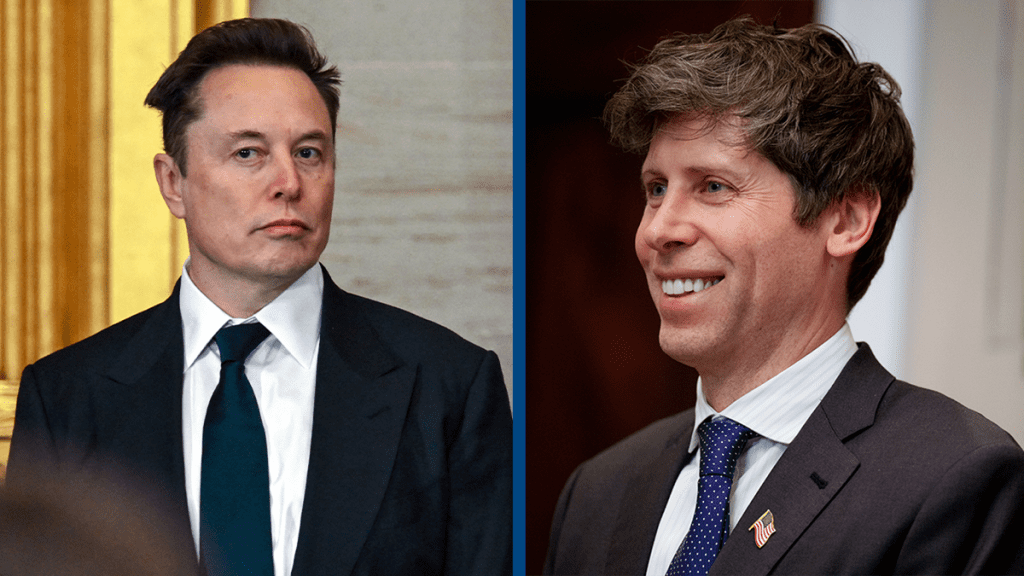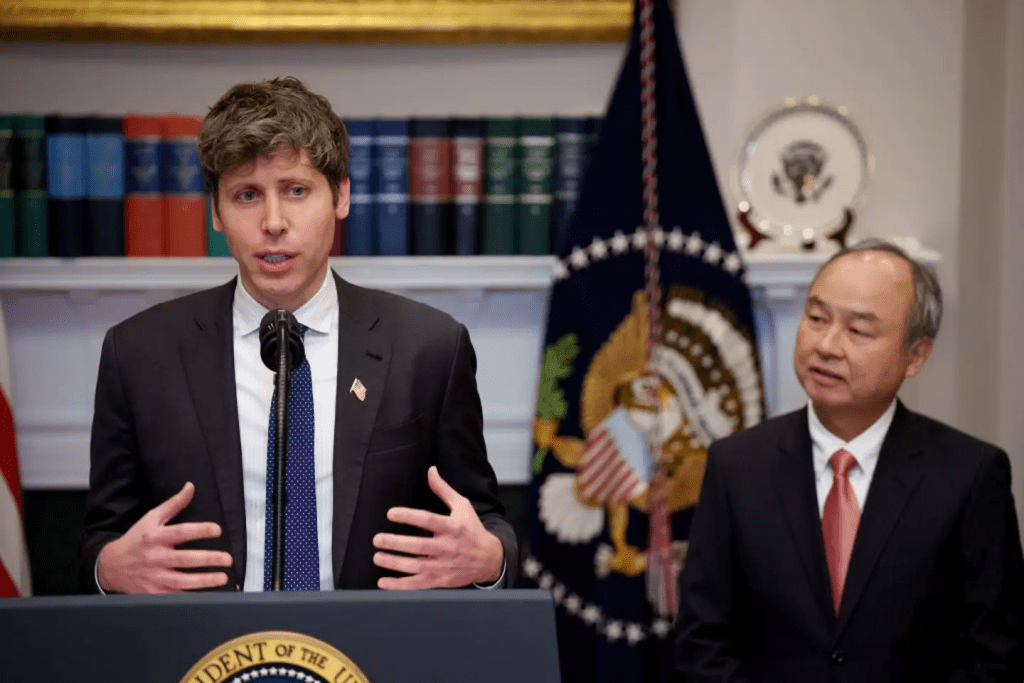
Elon Musk and Sam Altman, the CEO of OpenAI, have reignited their longstanding feud on social media following the announcement of OpenAI’s ambitious new $500 billion AI infrastructure project, called ‘Stargate.’ The confrontation unfolded after Altman presented the project at the White House, where he was joined by notable figures such as Oracle executive chairman Larry Ellison and SoftBank CEO Masayoshi Son.
The “Stargate” project, which is backed by an initial $100 billion investment, aims to construct advanced data centers in Texas to support cutting-edge AI systems. Altman’s announcement was met with praise from President Trump, who hailed the project as a significant boost for America’s technological advancement, calling it a strong vote of confidence in the nation’s future.
However, Tesla CEO Elon Musk wasted no time in challenging the project’s financial backing. On social media, Musk took a jab at OpenAI and its partners, writing: “They don’t actually have the money.” He claimed that SoftBank had “well under $10 billion secured,” suggesting that the project’s funding was not as solid as claimed.
Altman quickly responded, denying Musk’s assertion. “Wrong, as you surely know,” Altman retorted. He also invited Musk to visit the first site of the project that was already underway. Altman continued by emphasizing that the project would be beneficial for the country and encouraged Musk to put America first in his new role. He also pointed out that what is best for the nation may not always align with Musk’s personal business interests.

A source close to SoftBank countered Musk’s claim, stating that the company had $24 billion in cash and $140 billion in liquid securities as of the previous September. This back-and-forth marked the latest chapter in the ongoing rivalry between Musk and Altman, who are both at the forefront of major AI companies and are competing to influence AI regulations in the U.S.
Musk’s relationship with Trump, alongside his role leading the newly established Department of Government Efficiency (DOGE), has only intensified the tension. Altman has previously criticized Musk’s political influence, suggesting it would be “profoundly un-American” to use such power to hurt competitors and promote his own businesses.
At the White House event, Altman took the opportunity to praise Trump, stating that the three companies involved in the “Stargate” project would not have been able to proceed without his support. Altman painted the initiative as a transformative endeavor with the potential to create hundreds of thousands of jobs in the U.S. and revolutionize healthcare by accelerating disease cures.

Meanwhile, Musk continues to pursue legal action against Altman and OpenAI, as well as against Microsoft and billionaire Reid Hoffman, in an effort to prevent OpenAI from transitioning to a for-profit entity. Recently, Musk scored a legal victory when the Justice Department and the Federal Trade Commission sided with one of his key arguments, as reported by The Washington Post.
As both CEOs battle it out in the public sphere and in court, the stakes for the future of AI development, regulation, and business dominance continue to rise.


